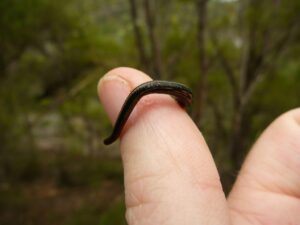Dealing with Leech Bites: Best Practices for Treatment
Leech bites can be acquired during a walk, a swim or while performing work in the rain. Typically, it’s not life threatening but needs to be treated properly to avoid infection and speed up healing. Everything you need to know about how to treat leech bites will be explained in this post.
 How to Treat a Leech Bite in the Urgent Care Process.
How to Treat a Leech Bite in the Urgent Care Process.
1. Don’t Pull the Leech Off
* Try pulling a leech away with your fist, as its teeth can stay stuck in your skin.
* Leech may vomit stomach contents, increasing risk of infection.
* instead salt, ethanol or heat it to unstick by itself.
2. Clean the Bite Area
* Remove with soap and hot water.
* Use an antiseptic such as betadine or hydrogen peroxide.
* Wipe the surface dry with a dry cloth.
3. Control Bleeding
* Leech-bite contains hirudin, which blocks blood clotting.
* Rub gently with a moist gauze.
* Expect bleeding to last for hours.
* Remove bandages as needed and disinfect the wound.
Treatment and Recovery
Medical Treatment
* Put on an antibiotic cream in order to stop infection.
* Sterilise the bite with a dressing.
* Change dressing once a day or when it gets damp or dirty.
* Check for infection symptoms.
Natural Remedies
* Apply cold compress for swelling.
*Aloe Vera Gel: Cooling effect for pain relief.
* Tea tree oil as an antiseptic of nature.
* Witch hazel: To decrease inflammation.
When You Need To Get Medical Help.
* Infection (redness, swelling, heat, pus)
* Fever or chills
* Severe pain or inflammation
* Allergic reactions
* Snacks around the eyes or throat: Avoid bites near sensitive places.
Prevention Tips
* Be prepared to cover in leech-rich places.
* Spray bug repellent with DEET.
* Don’t go out in mud/water.
* Check your body frequently when you go out in the field.
* Tuck clothing in when hiking.
How long does a bite from a leech take to recover?
The majority of leech bites are completely gone within 2-3 weeks, provided you treat them correctly. The first blood may continue for 24-48 hours, and any itchiness or minor pain usually subsides within a week.
Leschee bites are extremely rare, but can result in problems like:
* Bacterial infections
* Allergic reactions
* Frequent bleeding in people with blood diseases.
* Spreading of some parasites or bacteria.
Medical leeches are in fact used under supervision in hospitals for:
* Enhancing vascularity in reconstructive surgery.
* Reducing venous congestion
* Treating certain blood-clotting disorders
* But wild leech bites must always be a medical emergency.
Be on the lookout for these infection symptoms:
* Increased redness or swelling
* Sore, hot area around bite.
* Pus or discharge
* Fever or chills
* Increasing pain or tenderness
These will work in killing the leeches, but the leech might vomit out and become a risk for infection. Let the leech fall off on its own or take it out with a removal tool.
The blood flow will last 4-24 hours because leech saliva is an anticoagulant. Call your doctor if you have continued bleeding for longer than 48 hours.
Key Takeaways
* Never try to drag a leech out.
* Wipe the bite site clean and disinfectantly.
* Watch for infection symptoms.
* Expect heavy bleeding because of natural anticoagulants.
* Get a doctor’s visit if you experience troubling symptoms.
* Avoidance with clothing and awareness is the main point.
And keep in mind that leech bites are generally benign, but you’ll want to make sure you’re treating and monitoring it to avoid problems and get as well as fast as possible.


